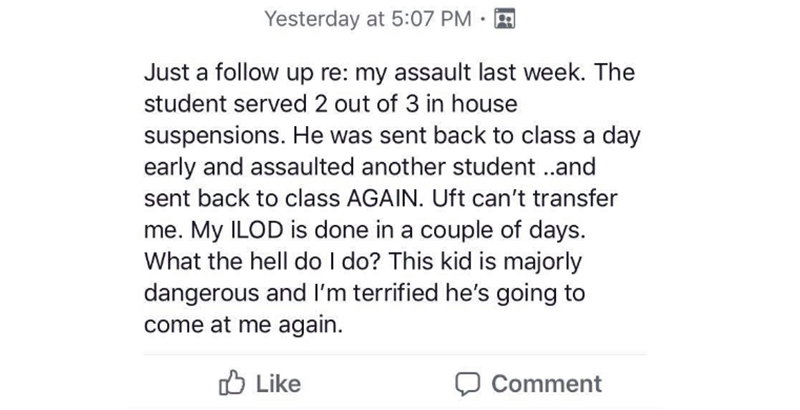Remembering Dr. King: What would he say about K-12 “restorative justice” discipline policies?
Tomorrow is the 50th Anniversary of the assassination of The Reverend Dr. Martin Luther King. Dr. King was an educated man; he entered Morehouse College at the precocious age of 15, demonstrated his leadership as president of the student body at Crozer Theological Seminary, and went on to get his doctorate in theology from Boston University. He used that education, and the great gifts given to him, to inspire our nation and the world.
What would Dr. King think of the state of public education today? What would he have experienced as a young man if he was in school today?
We are asking these questions because in Minnesota, and around the country, school districts, under pressure from the Obama administration, have adopted new student discipline policies. These new policies, referred to often as “restorative justice,” adopt a more accommodating approach to student misbehavior. One of the goals was to reduce the number of minority children being disciplined or expelled from school.
This is a worthy goal but how are the new policies working out for students and teachers?
The Twin Cities features one of the worst achievement gaps between minority and white students in the country, and for the most part, those sad numbers have not changed. So, it has not helped with student achievement. And by all accounts, the discipline policies are not reducing student misbehavior either. In fact, schools seem to be engulfed in increasingly rude and violent behavior on the part of students.
We want to know how these discipline policies are affecting teachers, both as teaching professionals and as human beings. Is this why so many teachers are leaving the profession? In Minnesota, 30% of teachers leave within four years; half of teachers are gone by the age of 42.
According to an article by Max Eden. a senior fellow at the Manhattan Institute specializing in education policy (published by “The 74” a non-profit, non-partisan news site covering education in America), teachers as a group do not like these new policies—and they are in danger of being assaulted verbally and physically at school.
The article by Eden is entitled “Teachers say discipline reforms are putting them in danger. So why are unions fighting repeal?” The article started with a screen shot of a teacher’s Facebook post:

These kinds of pleas from teachers is why Secretary of Education Betsy Devos is holding a meeting tomorrow with stakeholders to discuss the issue; her announced plan is to reverse the policy as soon as possible. The most powerful stakeholders are executives from the teachers’ unions such as Randi Weingarten from AFT.
According to Mr. Eden, the teachers’ unions, both AFT and NEA, supported the adoption of these policies, and they strongly oppose the plan to end them. The NEA even takes the position that traditional approaches to discipline are racist. Minnesota teachers have to pay dues to both the AFT and NEA; Education Minnesota divides up the dues from teachers amongst the various unions.
According to Eden, “On school discipline, there is a profound divide between national and local teachers’ union leaders.”
According to Eden, local unions have conducted polls that show teachers overwhelmingly say that the restorative justice approach is a failure:
I’ve found three districts where unions provided a forum for open and anonymous comment on discipline: Fresno, California; Buffalo, and Oklahoma City. The same horrible themes run throughout: principals refusing to manage misbehavior, turning a blind eye to violence, sweeping evidence under the rug, even rationalizing and excusing clear death threats. Teachers are telling us that administrators are behaving abominably. It’s almost impossible to believe that adults, charged with the care of our nation’s children, could act like this. But given the top-down mandates to reduce disciplinary statistics, this crass negligence is only a rational response to perverted incentives.
In theory, teachers unions should listen to teachers and act in their interests. But today’s national unions are more interested in signaling leftist virtue than in physically protecting teachers.
Restorative Justice policies are endorsed by the Minnesota Department of Education. And until the federal Department of Education rescinds the policy, schools that reject these policies are in a tough spot.
We have a simple question: is it not racist to excuse behavior in one child that you would not excuse in another based on skin color or ethnicity? Aren’t double standards inherently wrong? Whatever happened to the Golden Rule?
Moreover, if teaching professionals across the country are saying that these policies are not working in the classroom, and that too many teachers fear going to work, why wouldn’t the unions have their back? This points to an increasing gulf between the union political agenda and what works for teaching professionals, no matter their political beliefs.
We do not know what kind of student Dr. King was when he was a little boy, or as a teen. We do know he was brilliant and curious, and can assume he had wonderful teachers to guide him, and discipline him, if he needed it.
We are confident, however, that Dr. King would not be in favor of this new approach to discipline for minority children and completely unsurprised by the poor results. He would also be very concerned about the well-being of America’s classroom teachers.